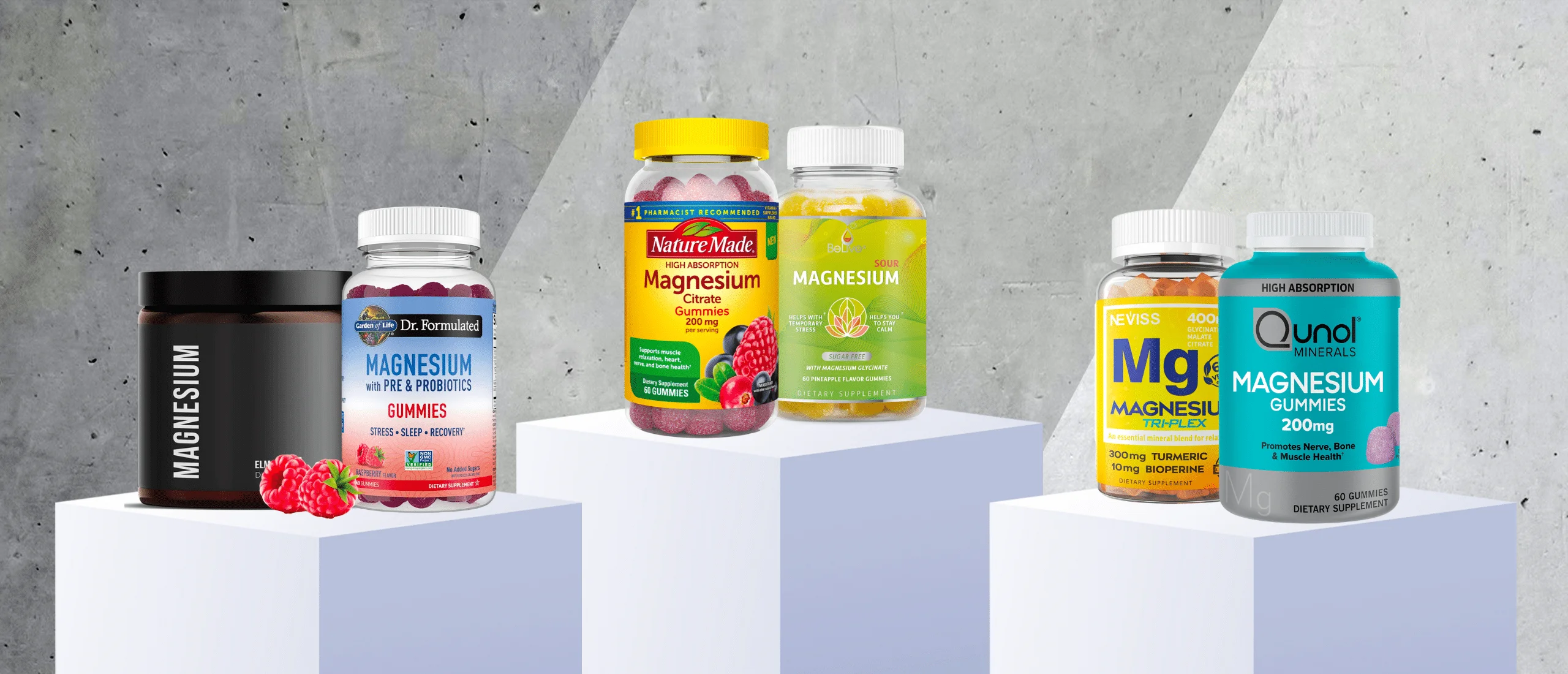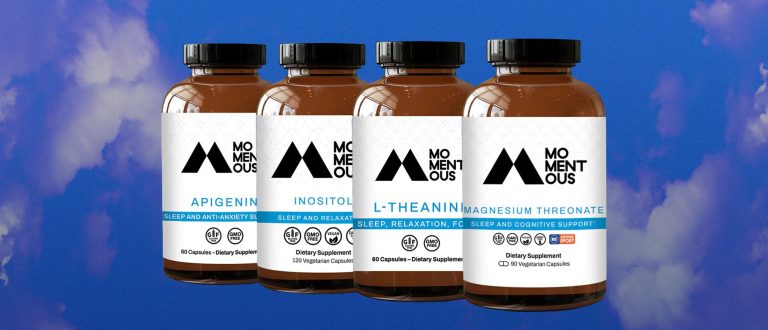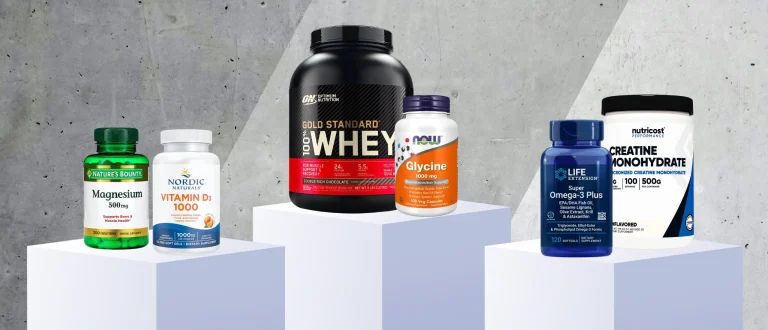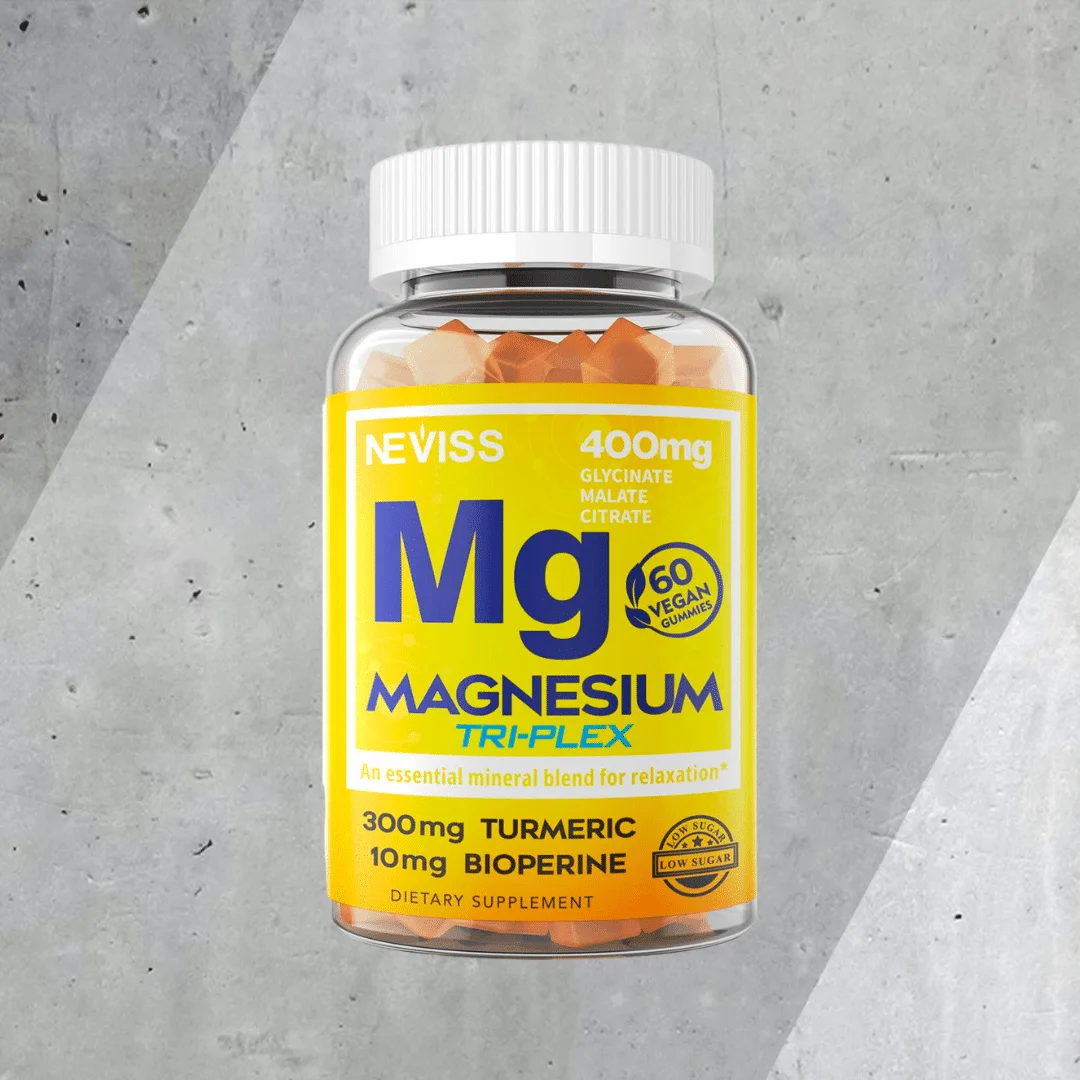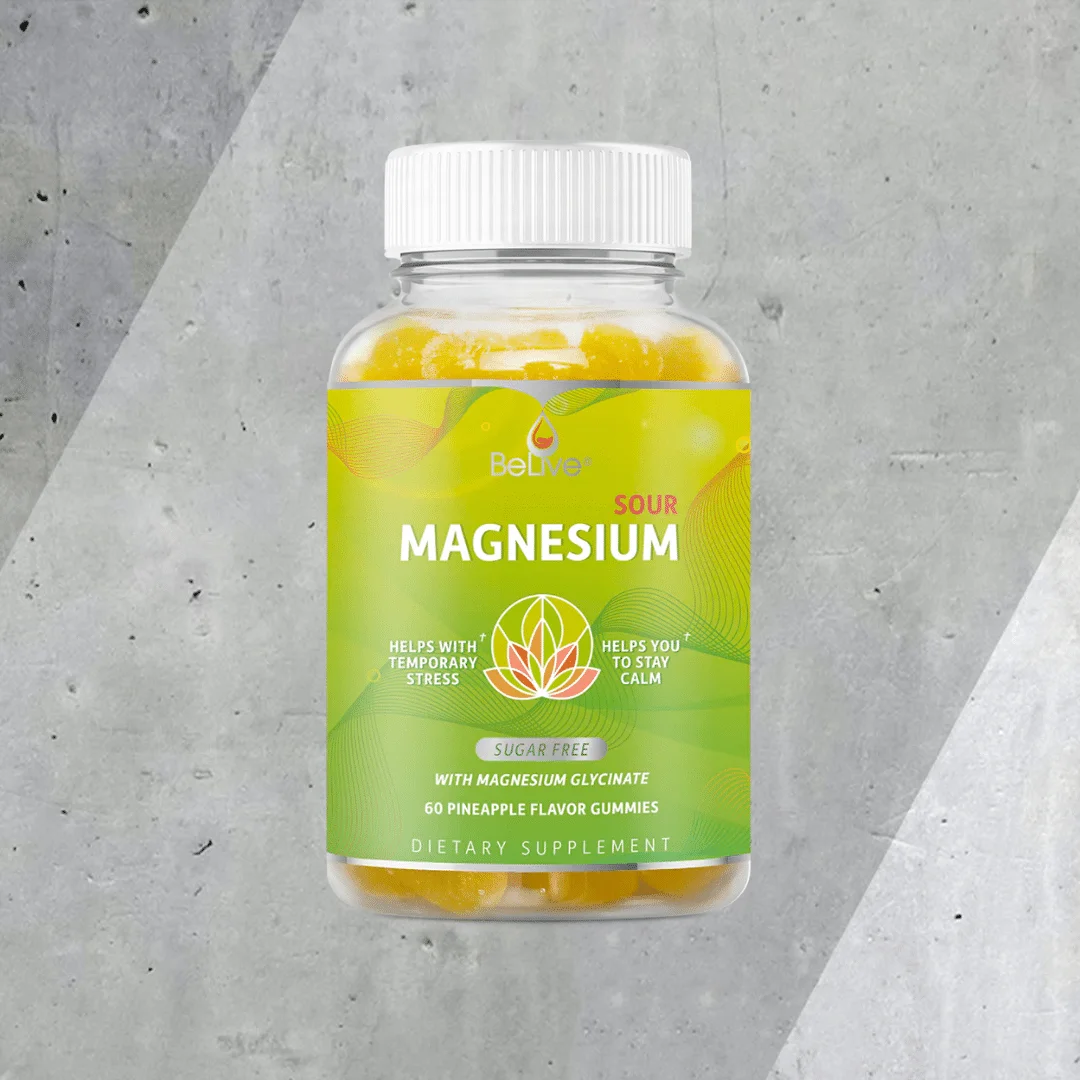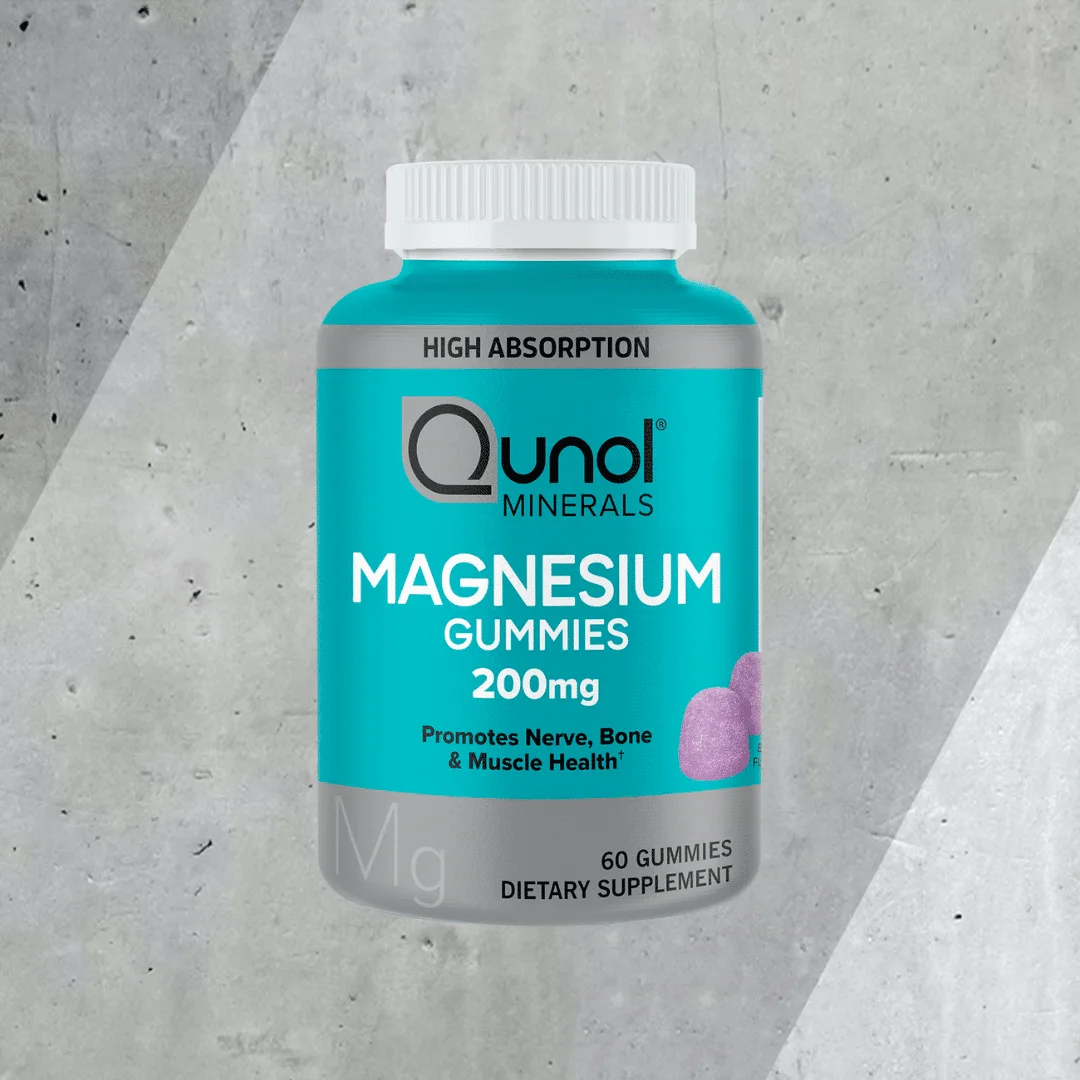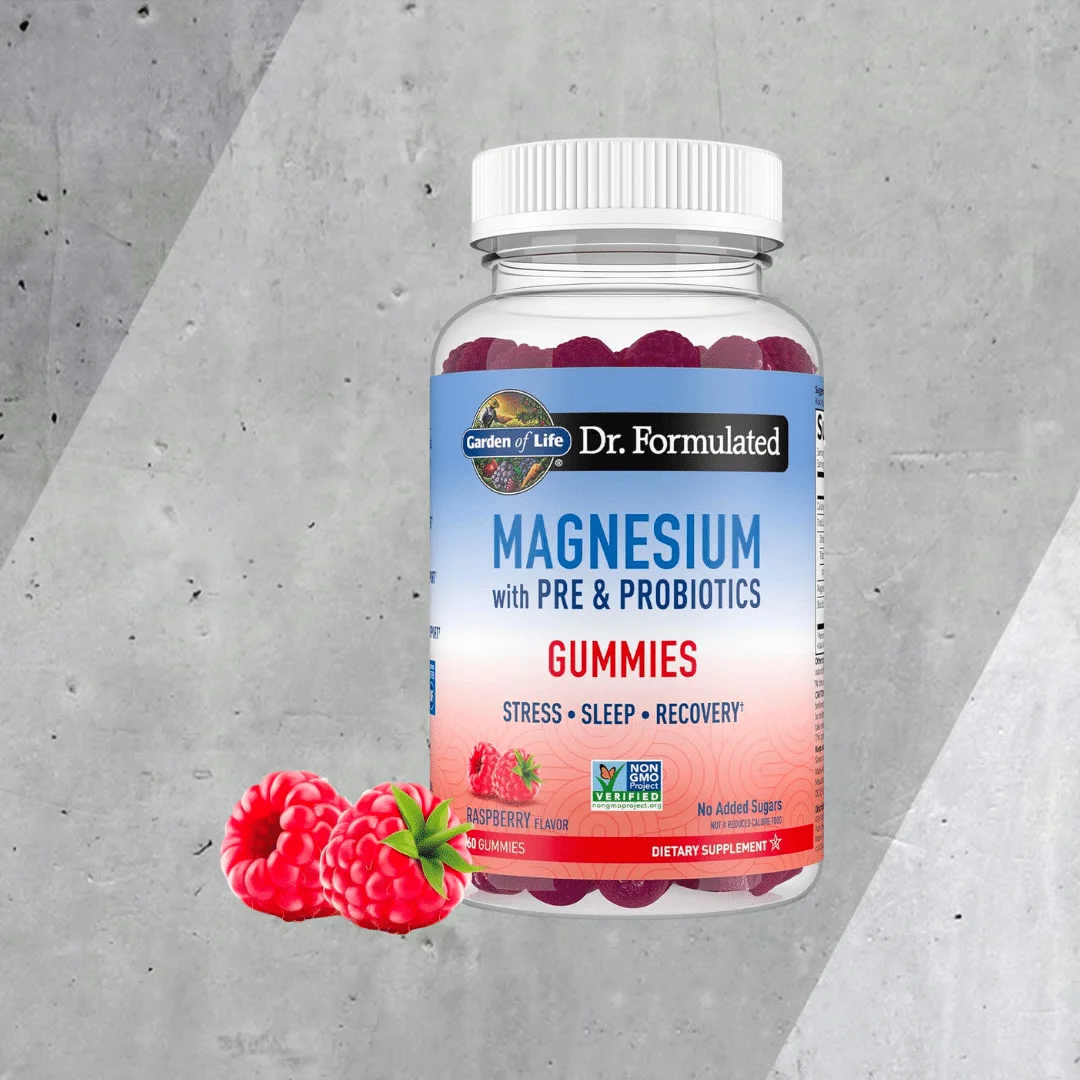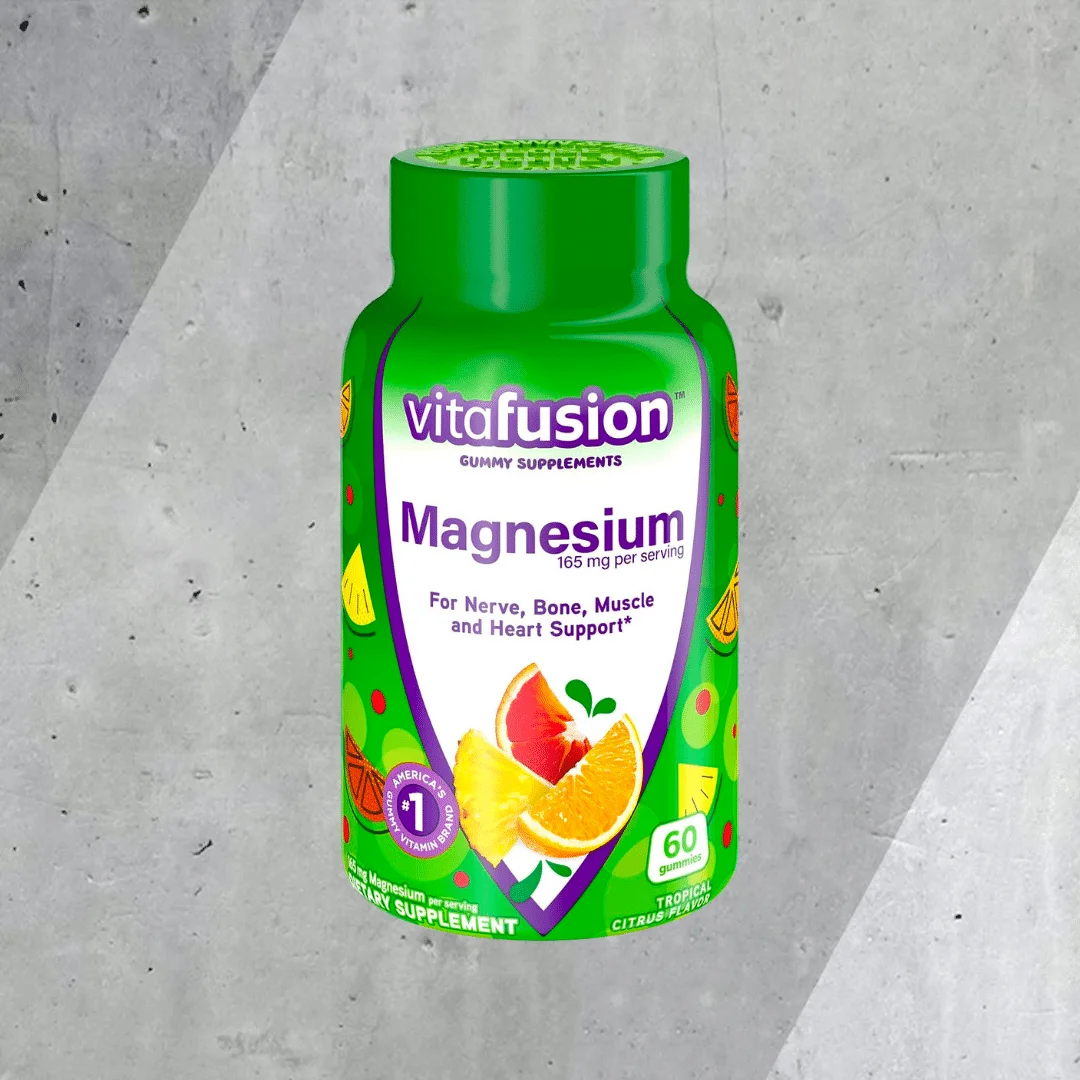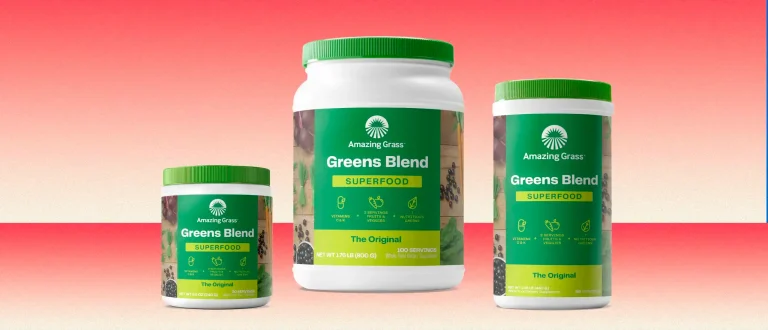Our product recommendations are selected by editors, tested first-hand, or expert-approved. We may earn a commission through links on our site.
Shopping for supplements can feel foolhardy. Why spend so much on something that you don’t really know you need, with effects that are difficult to track? Compared to most supplements, magnesium appears to be a pretty sure bet. Something like half of Americans (1) don’t get enough magnesium through their diet, and the stuff is linked to just about everything (2) in the body—poor bowel function, blood sugar management, blood pressure management, muscle building, nerve function, energy production, and more. And while magnesium can be obtained through various foods, pills, or powders, one increasingly popular and convenient way to meet your magnesium needs is much more fun: magnesium gummies. Here’s everything you need to know about magnesium gummies.
Our Experience
Hone Health is a team of health-obsessed journalists, editors, fitness junkies, medical reviewers, and product testers. We spent hours researching magnesium supplementation, magnesium gummies, the difference between types of magnesium, and why gummies may be preferable to powder or pills before ever putting finger to keyboard. We’ve also tried a number of the products recommended for ourselves to ensure there’s no funny business going on.
MAGNESIUM
The Best Magnesium Gummies for the Money
Neviss Triple Magnesium Gummies
Best if you’re magnesium deficient
With the addition of vitamin B6, vitamin B12, turmeric extract, and black pepper extract, NEVISS’s magnesium gummy comes with a lot more firepower than your typical magnesium supplement. The magnesium makeup is roughly two parts glycinate—highly bioavailable, known for calming effects and blood sugar regulation—and one part each of malate and citrate. Malate and citrate are both extremely common in magnesium complexes like this one because each is easily absorbed by the body. This gummy’s 400mg magnesium payload is also right in line with what longevity experts, like Peter Attia, recommend.
Cost per serving: $0.58
Dose: 400mg
Servings: 60
Forms of magnesium: glycinate, malate, citrate
Flavor: mango
BeLive Magnesium Sour Gummies
Best for relaxation
If you’re more into sour than sweet, consider BeLive’s 200mg magnesium glycinate sour pineapple gummies (they’re not as sour as, say, Sour Patch Kids, unfortunately). Unlike many magnesium supplements, this option is purely magnesium glycinate, which is most known for easy absorption and having a lighter touch on the stomach and intestines, which some people who supplement magnesium may experience. This, combined with the lower magnesium volume per serving, makes BeLive’s magnesium gummy better suited for folks with more balanced diets trying to shore up any perceived deficiencies.
Cost per serving: $0.64
Dose: 200mg
Servings: 30
Forms of magnesium: glycinate
Flavor: sour pineapple
Qunol Minerals Magnesium Gummies
Best for bioavailability
Qunol’s magnesium gummy is for the generalist. Its 200mg of magnesium is in the low to mid range of magnesium per serving, which is probably where most people want to be. It’s also made using magnesium citrate, which is the most common type of magnesium used in the supplement world. It’s known for being extremely bioavailable, which means your body is able use more of it. One note, though: magnesium citrate is also known as a very mild laxative, so if you have IBS or other digestive conditions, take heed. On the other spectrum, if you need help in that department, magnesium citrate can help.
Cost per serving: $0.66
Dose: 200mg
Servings: 30
Forms of magnesium: citrate
Flavor: Berry
Garden of Life Magnesium Gummies
Best value
Available in most grocery store pharmacy sections, Garden of Life is one of the most popular supplement brands, and its magnesium gummy supplement shows why. For one, each gummy carries exactly 100mg of magnesium, which makes dosing a breeze (particularly if you want to start on a lower or higher dose and eventually find a healthy middle ground). Plus, at just over 20 cents a gummy, it’s also incredibly affordable and, given you can probably find it in a store near you and avoid paying shipping, even cheaper than similar options from other companies. The raspberry flavor is just OK, though. It certainly didn’t make me excited to eat gummies, which is probably healthy all things considered.
Cost per serving: $0.23
Dose: 100mg
Servings: 60
Forms of magnesium: citrate
Flavor: raspberry
VItafusion Magnesium Gummies
Most affordable
By a cost per mg of magnesium basis, Vitafusion’s magnesium gummy is the best deal you can get, and it’s available just about everywhere supplements are sold. Its makeup is magnesium citrate and oxide and the flavor is a somewhat dull “tropical” citrus, which tastes more like a slightly sweet lemon flavor.
Cost per serving: $0.36
Dose: 165mg
Servings: 30
Forms of magnesium: citrate, oxide
Flavor: citrus
Types of Magnesium Supplements
You’ll find the magnesium within different magnesium supplements takes many forms, as the supplement becomes significantly more bioavailable when bonded with various substances—different kinds of salts in this case—our body processes (3). These bonding agents can dictate where in the body the magnesium is processed, and potentially how you may experience the effects of supplementation (4).
An example: magnesium citrate, probably the most common magnesium supplement, is a saline agent and therefore a mild laxative (5), whereas magnesium L-threonate is notable for its rare ability to cross the blood-brain barrier and cognitive-boosting effects (6). Here are some of the most common and popular types of magnesium supplements, and what they’re most often used for.
A caveat, though, per Dietitian Alyssa Pacheco: “If you’re a generally healthy person with a varied diet, you likely don’t need to worry about the most easy to absorb form of a magnesium supplement.” What’s more important, she says, is making sure you’re not getting robbed.
“Since supplements are not regulated by the FDA though, I’d look for a supplement that is third party tested for quality and purity to ensure that you’re actually getting the dosage that’s being advertised on the label,” she says.
Magnesium citrate
Known for its effective laxative properties, magnesium citrate is often used to relieve constipation. It’s also absorbed well, making it suitable as a general magnesium supplement, and is often the most affordable and widely available of any magnesium supplement type.
Magnesium oxide
Magnesium oxide contains a lot of magnesium but is absorbed by the body more poorly. It’s most commonly used as an antacid to relieve heartburn or indigestion, but is not the best choice for magnesium supplementation because of its lower bioavailability.
Magnesium malate
Magnesium malate is well-absorbed and is often chosen by individuals looking to support energy production and alleviate symptoms of fibromyalgia or muscle pain. You’ll often find magnesium malate as a part of a magnesium complex supplement, which rolls up several types of magnesium into a single gummy.
Magnesium chloride
Magnesium chloride has high bioavailability and can be absorbed through the skin (if you’re familiar with magnesium oil or magnesium spray, it’s made with magnesium chloride). Unsurprisingly, it’s often tied to muscle relaxation and stress reduction.
Magnesium glycinate
Magnesium glycinate is highly absorbable and gentle on the stomach. It’s often chosen for its calming effects and is a good option for those with sensitive digestive systems. It’s also been found to boost bone health, manage blood sugar in people with diabetes, and maintain normal heart rhythms.
Magnesium lactate
Magnesium lactate is well-absorbed and is sometimes used as a supplement to address magnesium deficiency, but mostly as a means of fortifying various processed foods.
Magnesium taurate
Magnesium taurate combines magnesium with the amino acid taurine. It’s less common than most forms of magnesium supplement, but it’s chosen for its potential cardiovascular benefits and blood sugar regulation benefits.
Magnesium L-threonate
Magnesium L-threonate is known for its potential to enhance cognitive function and brain health. It has been researched for its unique ability to cross the blood-brain barrier as well. For these reasons, it’s one of the choice types of magnesium for longevity experts concerned with keeping the brain elastic and functioning for as long as possible.
Magnesium orotate
Magnesium orotate combines magnesium with orotic acid and generally isn’t very popular outside of high-level athletics because of its potential benefit to heart health and performance. It’s typically more expensive than any other kind of magnesium supplement.
MORE MAGNESIUM
Magnesium Gummies vs. Powder and Capsules
Taste and convenience: Gummies are undeniably more enjoyable to consume than swallowing pills or dealing with the often chalky taste of powdered supplements. The flavors and texture make supplementing magnesium feel like a treat rather than a chore. This encourages better adherence to a magnesium supplementation regimen, especially for those who dislike the occasionally weird taste or difficulty of swallowing pills.
Digestibility: Gummies are pre-dissolved and broken down in the mouth before entering the digestive system. This means that the magnesium in gummy form may be more readily absorbed in the stomach and small intestine compared to some types of magnesium pills or powders that require stomach acid for breakdown.
Accurate dosage: Gummies come in pre-measured servings, which ensures you get a consistent and accurate dose of magnesium with each gummy. This eliminates the need for measuring and potentially misjudging the dosage, which can occur with powdered forms. It’s a lot easier to remember to pop a few gummies before bed than it is to get the scoop and shaker bottle out.
Portability: Magnesium gummies are highly portable and do not require water for consumption. This makes them convenient for on-the-go supplementation, whether you’re at work, traveling, or simply out and about.
- https://pubmed.ncbi.nlm.nih.gov/22364157/
- https://ods.od.nih.gov/factsheets/Magnesium-HealthProfessional/
- https://www.ncbi.nlm.nih.gov/pmc/articles/PMC6683096/
- https://setpublisher.com/index.php/jpans/article/view/1618/1485
- https://www.ncbi.nlm.nih.gov/pmc/articles/PMC2780140/
- https://www.ncbi.nlm.nih.gov/pmc/articles/PMC9786204/

